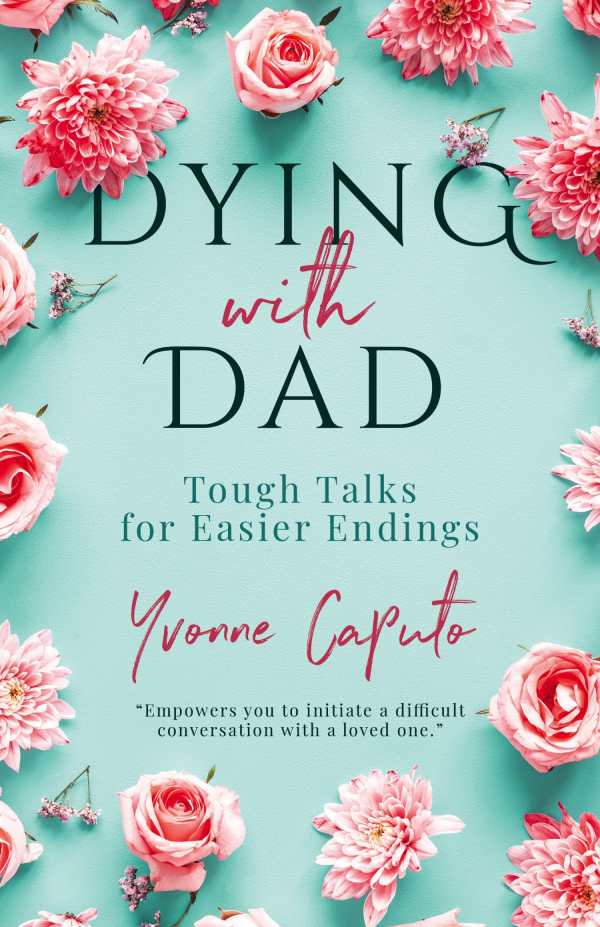Dying with Dad
Tough Talks for Easier Endings
Dying with Dad is a moving memoir about the importance of talking about death.
Yvonne Caputo’s memoir Dying with Dad is about her experiences with losing people whom she loved—and with learning how to address the topic of death more broadly.
Caputo introduces herself via her childhood, and as “a girl [who] was surrounded by death.” Before she was thirty, she’d lost seventeen family members and friends, including a favorite uncle who died by suicide, a cousin who was murdered in New York, and her brother, who died in a car accident. After this background is established, Caputo explains her relationship with her father, a B24 navigator who served during World War II; like many who served in the conflict, he suffered from PTSD.
The memoir combines touching memories from Caputo’s childhood with poignant conversations she had with her father about life and death. These include an exchange about the importance of the Five Wishes, a legal document that is described as a gift to the family, friends, and doctors of a person facing death, and that explains what kind of treatment they want (or do not want).
The book widens to consider cultural constructs, too. With clarity and concision, Caputo reflects on the connections between dying people, their homes, and their families; she notes that all were strong in the nineteenth century, when people used to die at home, though these connections are noted to be largely lost now. She attributes this to the fact that medical professionals now take care of the ailing body, and morticians take over after death, leaving little space for private family grieving.
The book aims to encourage its audience to start conversations about death with their loved ones; it asserts that this can help when it comes to leaving a powerful legacy. It deals with topics like the feeling of helplessness after a loved one passes away, and the sudden realization of your own life being worth living until the last second, in a sensitive manner: “Those beautiful lives, the possibilities that we all took for granted of what life might have in store, gone in a heartbeat. Or, gone with the heartbeat. Silenced.”
Throughout, the book does an able job of conveying the importance of talking openly about death. It imparts the belief that end-of-life discussions can be beginnings, too, leading to new realizations and happier lives. A sense of the necessity of moving conversations about death into a non-morbid category prevails—exemplified by Caputo’s recorded conversations with her father, which let her know that she had helped him leave the world on his own terms. The book celebrates other family members who help their loved ones to determine their own ideal conditions for their final years, months, days, and hours, too.
Dying with Dad is a touching memoir about the importance of talking about death.
Reviewed by
Anna Maria Colivicchi
Disclosure: This article is not an endorsement, but a review. The publisher of this book provided free copies of the book and paid a small fee to have their book reviewed by a professional reviewer. Foreword Reviews and Clarion Reviews make no guarantee that the publisher will receive a positive review. Foreword Magazine, Inc. is disclosing this in accordance with the Federal Trade Commission’s 16 CFR, Part 255.

